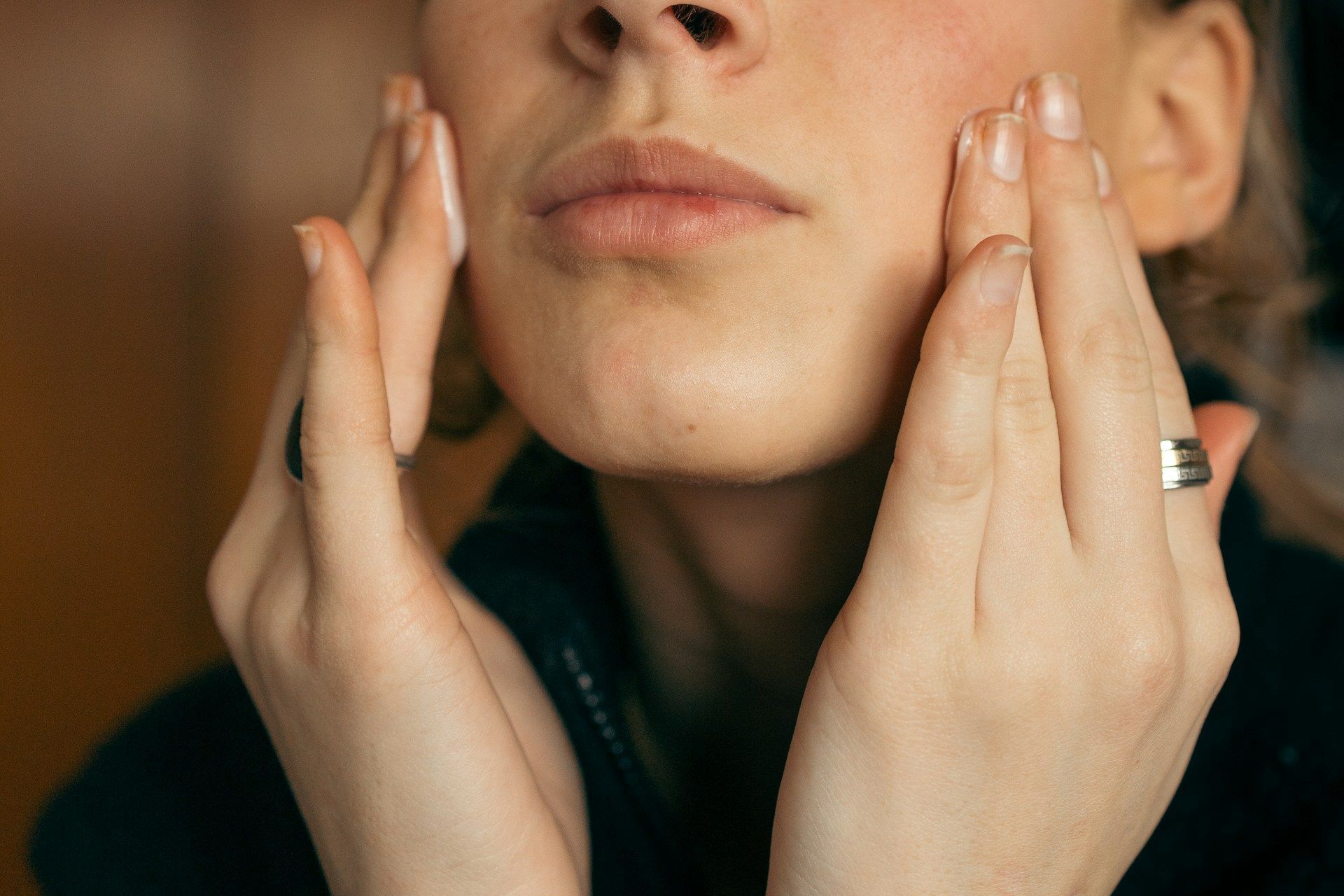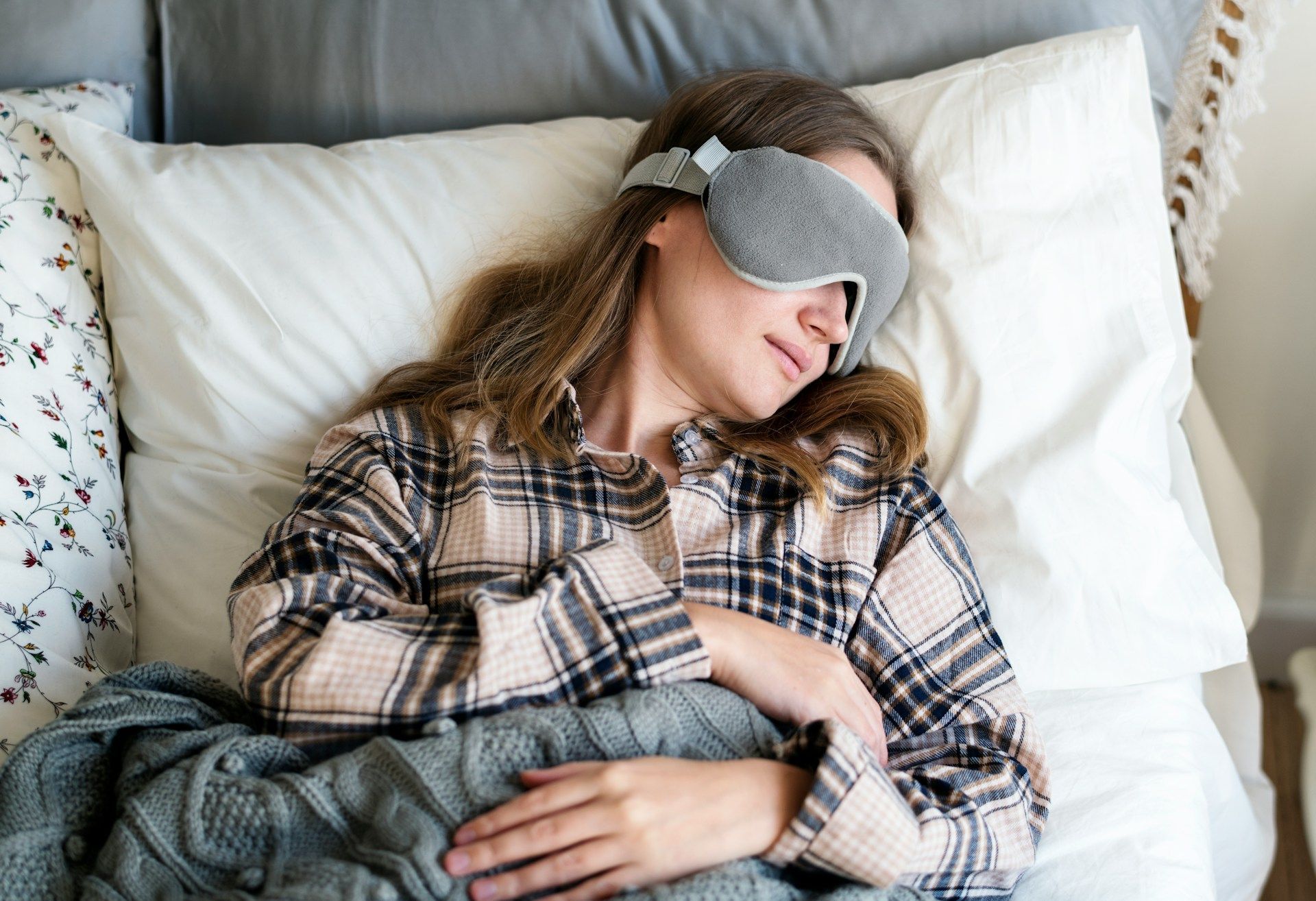Sleep Apnea in Women: Understanding Unique Risks & Heart Health Concerns

While sleep apnea is often perceived as a condition predominantly affecting men, research shows that women, too, can suffer from this sleep disorder, with unique risks and heart health concerns that must be addressed.
The Center for Sleep Apnea and TMJ, dedicated to treating sleep apnea, snoring, TMJ disorders, and head and facial pain in Meridian, recognizes the importance of understanding the particular challenges faced by women with sleep apnea in order to provide tailored solutions for a better night's sleep and improved overall health.
In this article, you will learn about the specific risks of sleep apnea in women, how it impacts their heart health, and how the expertise of Dr. Cameron Kuehne and the team at The Center for Sleep Apnea and TMJ in Meridian can help navigate these complexities to achieve lasting relief and prevent cardiovascular complications.
Sleep Apnea in Women: Unique Features and Risks
Sleep apnea is a sleep disorder characterized by pauses in breathing or shallow breaths during sleep, which can lead to numerous health issues if left untreated. Although often underdiagnosed in women, it is essential to recognize the unique features of sleep apnea that women experience:
1. Symptoms:
Women with sleep apnea may present different symptoms compared to men. Common symptoms in women include fatigue, morning headaches, mood disturbances, and insomnia, whereas men more frequently experience loud snoring and choking during sleep.
2. Hormonal factors: Hormone fluctuations, particularly during pregnancy and menopause, can increase the risk of sleep apnea in women. These fluctuations may cause muscle relaxation in the airway, leading to obstructive sleep apnea.
3. Age: Women experience a higher risk of developing sleep apnea after menopause due to the decline in estrogen and progesterone, which are responsible for maintaining muscle tone in the upper airway.
4. Overlapping health conditions:
Women with sleep apnea often have other health conditions, such as fibromyalgia, chronic fatigue syndrome, and hypothyroidism, which can exacerbate the symptoms and complications of this sleep disorder.
At The Center For Sleep Apnea and TMJ, Dr. Cameron Kuehne and his team are dedicated to providing comprehensive care tailored to the specific needs of women with sleep apnea, helping them address these unique challenges effectively.
Impact of Sleep Apnea on Women's Heart Health
Sleep apnea in women poses significant risks to heart health, contributing to various cardiovascular issues, including hypertension, heart attacks, arrhythmias, and heart failure. The following factors explain the connection between sleep apnea and heart disease in women:
1. Oxygen Deprivation: The intermittent episodes of hypoxia, or low oxygen levels, caused by sleep apnea force the heart to work harder, resulting in increased strain on the cardiovascular system.
2. Inflammation: Sleep apnea promotes inflammation in the body, contributing to the development of atherosclerosis, or plaque buildup in the arteries, a leading cause of heart disease.
3. Stress Response:
Sleep apnea leads to frequent disruptions in sleep, causing increased stress hormone levels, which can impair cardiovascular function and exacerbate heart issues.
4. Women's Unique Biology:
Sleep apnea's impact on women's heart health may be more significant than in men due to factors such as hormone fluctuations and the increased prevalence of obesity, particularly in post-menopausal women.
Recognizing the specific risks for women and the impact on their heart health, Dr. Cameron Kuehne and his team at The Center For Sleep Apnea and TMJ are committed to providing personalized solutions to help women manage their sleep apnea effectively and protect their cardiovascular well-being.
Diagnosis and Treatment Options for Women
As the symptoms of sleep apnea can differ in women, it is of utmost importance to seek accurate diagnosis and appropriate treatment tailored to their specific needs. At The Center For Sleep Apnea and TMJ, Dr. Kuehne and his team take a comprehensive approach to diagnose and treat sleep apnea in women:
1. Thorough Assessment:
Dr. Cameron Kuehne will conduct a detailed evaluation of the patient's symptoms, medical history, and any co-existing conditions to identify the presence and severity of sleep apnea.
2. Oral Appliances:
Custom-fitted oral appliances are an effective treatment for sleep apnea, as they help maintain an open airway during sleep by repositioning the lower jaw and tongue or providing a barrier between the upper and lower teeth. Dr. Kuehne and his team have extensive experience in designing and fitting these appliances for optimal results.
3. Orthodontic Intervention:
Women with sleep apnea may benefit from orthodontic treatments to correct bite and jaw alignment issues that contribute to the sleep disorder. As a specialist in TMJ disorders, Dr. Cameron Kuehne can accurately diagnose and address these concerns to improve sleep apnea symptoms.
4. Surgical Options:
In cases where non-invasive treatments are ineffective, surgical interventions may be necessary. Options include procedures to remove excess tissue in the throat, correct structural abnormalities, or implant devices that stimulate the nerves controlling airway muscles.
5. Additional Medical Referrals:
As part of their commitment to comprehensive care, Dr. Kuehne and his team may refer patients to other healthcare professionals for specialized treatments related to sleep apnea or heart disease management.
Lifestyle Modifications and Women's Sleep Apnea Management
In addition to personalized treatments, women with sleep apnea can benefit greatly from lifestyle modifications to manage their condition and reduce heart health risks:
1. Weight Management: Maintaining a healthy weight is crucial, as excess weight, particularly in the neck area, can worsen sleep apnea by applying pressure on the airway.
2. Hormone Therapy:
For women experiencing menopause-related hormone fluctuations, hormone replacement therapy may be beneficial in managing sleep apnea symptoms and reducing heart disease risk.
3. Sleep Position:
Adopting a side-sleeping position or using a specialized pillow can help minimize the risk of airway obstruction during sleep.
4. Stress Reduction: Managing stress through relaxation techniques, such as deep breathing exercises or meditation, can help counteract the impact of stress hormones on heart health.
Ongoing Support and Monitoring
Consistent monitoring and support from Dr. Cameron Kuehne and his team at The Center For Sleep Apnea and TMJ are essential for women with sleep apnea to achieve long-term success in managing their condition and preserving their heart health. The team will work with patients to track symptoms, make any necessary adjustments to treatment plans, and provide education and resources to encourage a proactive approach to managing sleep apnea and preventing cardiovascular complications.
Your Heart Health Matters: Trust The Center For Sleep Apnea and TMJ
Understanding and addressing the unique risks and heart health concerns associated with sleep apnea in women are essential steps in protecting your cardiovascular well-being. Dr. Cameron Kuehne and the team at The Center For Sleep Apnea and TMJ in Meridian are committed to providing personalized care tailored to effectively diagnose and manage the complex factors contributing to sleep apnea in women, empowering you to take control of your sleep health and reduce heart disease risks.
Don't wait to prioritize your health and well-being – contact our
Meridian sleep apnea doctor at The Center For Sleep Apnea and TMJ today to explore expert solutions designed specifically for women to address the challenges of sleep apnea and safeguard your heart health.
Contact Us
The Center for Sleep Apnea & TMJ
1718 S Millennium Way, Meridian, ID 83642
Phone: (208) 376-3600
Fax: (208) 376-3616
All Rights Reserved
The Center for Sleep Apnea & TMJ
All Rights Reserved - Accessibility Statement
The Center for Sleep Apnea & TMJ










